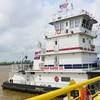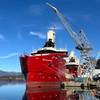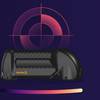California Aims to Clear the Air Around Cruise Ships
Copley News Service reports that air quality regulators have doused trash fires on cruise ships traversing the California coast.
By unanimous vote Thursday, the California Air Resources Board adopted rules to implement legislation that bars cruise ships from burning refuse within 3 miles of shore.
In doing so, smog fighters also signaled their intention to take up similar regulations for many other vessels, including mammoth cargo ships, tankers and military carriers based in San Diego.
Cruise ships are a big part of the California waterfront economy, making 652 stops, including 361 at the ports of Los Angeles and Long Beach. Port calls could increase 25 percent over the next decade, state officials estimate.
Cruise line representatives did not appear at the board meeting, but embraced the new rules in a letter.
Teri Shore, who monitors cruise ship pollution for Bluewater Network, an environmental group, said she hopes other coastal states will follow California's lead.
Reducing pollution caused by burning trash, ranging from food to rags, will significantly reduce cancer risks and could save as many as 900 lives a year, according to an air board estimate.
The smoke contains arsenic, lead, mercury and nickel, the air board reported.
The rules had to be adopted to give inspectors the ability to check compliance and cite violators. The board's order requires vessel operators to maintain records that must be available during onboard inspections.
The legislation imposes a fine of up to $25,000 per violation. Since going into effect Jan. 1, the law has had a noticeable impact. Only two of 26 ships surveyed reported burning waste within 3 miles of the coast since the beginning of the year, according to the air board.
Cruise ships were singled out by the initial measure, AB 471, because of the huge amounts of waste generated by as many as 5,000 passengers per vessel. Incinerators can operate 12 hours a day for as many as six days a week, according to a state study. One limited state survey found ships burn an average of 1,736 tons of trash a year.
Subsequent legislation, AB 771, will broaden the reach of the law when it goes into effect Jan. 1. Most military vessels, state-owned ships and tankers – even those with minimal crews – will have to comply with the ban.
The air board is expected to consider similar regulations for those ships next year.
Jerry Martin, a board spokesman, said lawyers are still exploring whether the state can impose restrictions on federal vessels within California's waters.











